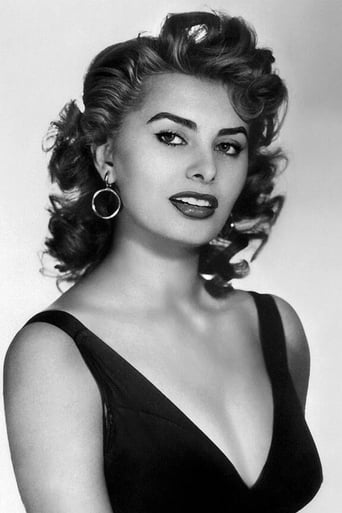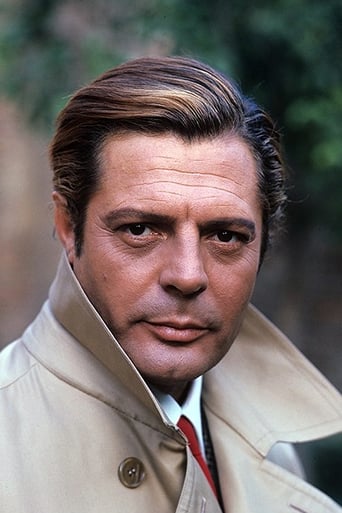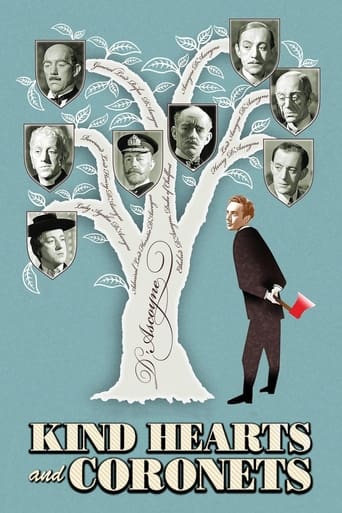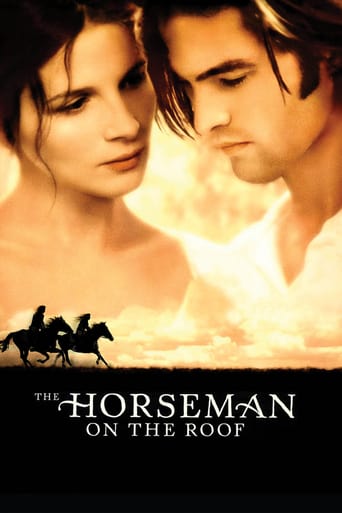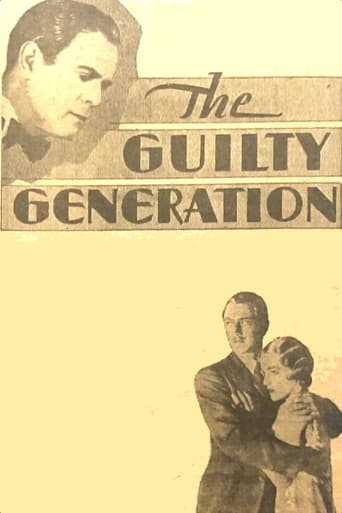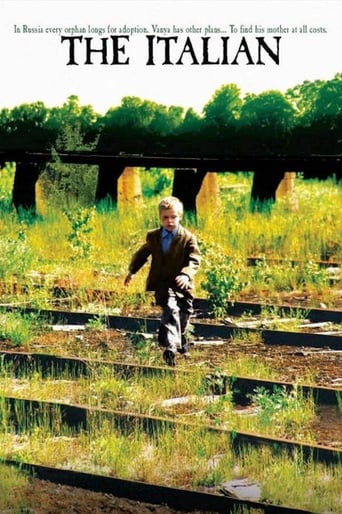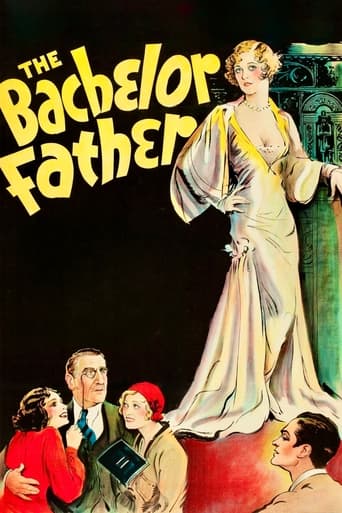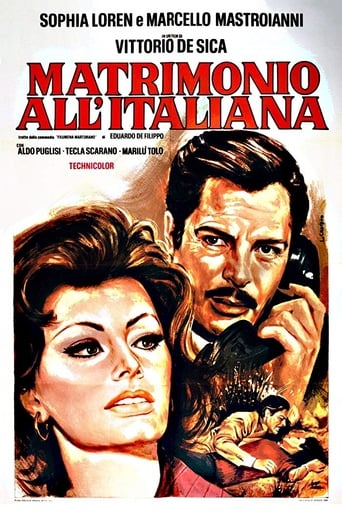
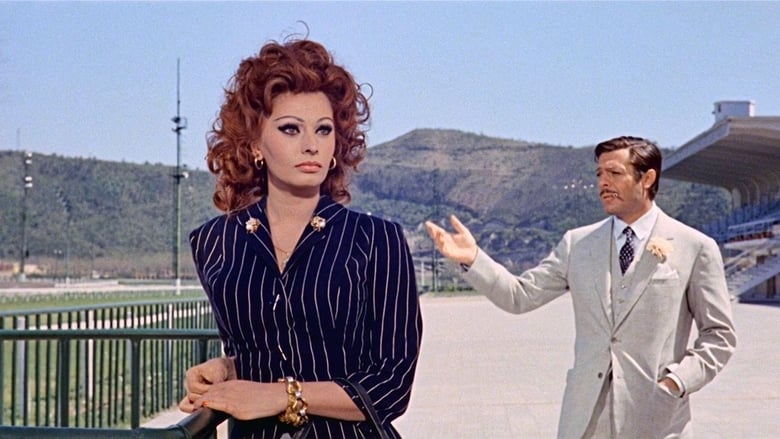
Marriage Italian Style (1964)
When Domenico first meets Filomena in Naples during World War II, he is instantly smitten. Flash forward to the postwar years, and the two meet again, sparking a passionate affair that spans two decades. But when Filomena — who has now become Domenico's kept woman and has secretly borne his children — learns that her lover is planning to wed another, she will stop at nothing to hook him into marrying her instead.
Watch Trailer
Cast


Similar titles
Reviews
Not a bad film. The other written reviews overrate it. One must surmise, due to the grammar, written by born-and-raised Italians and italo-Americans clinging to an identity, laying claim to what they view as their own Hollywood.The themes treated are, fairness, dignity, maschilismo, call to responsibility, redemption and finally feminism.The film presents you with a subject matter that has no age, treats it lightly, but doesn't trivialize or judge and has memorable one liners. No big innaccuracies. The movie itself has aged but not badly and it's appreciation relies on recognizing the filmmaking style and conventions of the era (and it's limits) and appreciating it as a Loren, Mastroiani De Sica film. (and probably the fact that it's Italian).The film doesn't show, only alludes to the squalor of prostitution and the Don using Filumena as a sex object. But rather concentrates on the offenses to her dignity and unrequited, unconditional love. Which in truth must be brought into question when she does the big reveal.The two characters, Don Domenico and Filumena are defined by how they view their relationship; resulting in one-dimensional characterization. Filumena is virtuous, hard-working, and justice seeking and The Don is a hedonist opportunist sexist playboy. That's it. The film doesn't delve into their past at all to show us how they came to be who they are and they have no familial relationships or considerations (except Don's prop-like mom) to influence their decisions. The audience can't get any insight into any of their reasoning besides what they would say to each other. Given the nature of their relationship (ego vs. ego) they shan't be direct so when they are, it feel like an unnatural exchange.The filmmakers have to move the plot and make the audience understand the two characters' mindset in limited exchanges mostly between themselves and the script and dialogue were not quite up to this task. The ending, a moralistic triumph for feminism, is unrealistic given the suppositions and there were no hints of, nor internal reason for the final turn of heart of The Don, and too many questions about Filomena's past unanswered. (Did she choose prostitution or forced into it? did she stop when The Don started maintaining her? When?).The acting is ok. I didn't see this 'amazing' chemistry. They were just acting. There was nothing; mannerisms, spontaneity, or glances, that hinted at any familiarity between the two actors even if they were friends off set.A far superior Italian comedic film is 'I Soliti Ignoti' although it doesn't have any drama but it does have a love subplot that is treated with genial comedy and naturally evolving and kinetic affair without the dreaded forced happy ending.This is the best review on this film since I have no emotional, or hereditary connection to the material, geographical area or the artists. It differs a lot form the majority of user reviews, so I may watch it again to modify or add to it If I missed something.
Yes, Sophia Loren is breathtakingly beautiful in this movie - at times - but there is much more to it than that.This movie does a remarkable job of developing two characters, especially Loren's character, over more than 20 years. There are no stereotypes - the warm-hearted prostitute, etc. - here, no facile caricatures. Rather, Loren, directed by di Sica, is able to develop a complex and fascinating character who goes from a 17 year old girl to a woman in her 50s. Loren does this not with fancy make-up, etc., but by ACTING. She is believable as the terrified young girl thrown into prostitution by abject poverty; she is completely believable as the 50+ year old woman defending her three children. (She was 30 when she made this movie.) I couldn't stop watching this movie. Loren is so real in it that you HAVE to find out what will become of her character.This movie shows you what a good movie can be: something with complex, real characters whom you want to know more about. It is the complete opposite of the caricature-, stereotype-ridden formulaic pictures we get too often.
Starting with "Yesterday, Today, and Tomorrow" in 1963, Marcello Mastroianni and Sophia Loren began a series of films together that were the comic equivalents of the series of movies made by Spencer Tracy and Katherine Hepburn in the 1940s to 1966. The comparison is an apt one, surprisingly, because the two sets of performers perfectly complemented each other in their films together and literally examined the relationship of man and woman in these films beyond most of their contemporaries. If the Italians were able to be more explicit about sexual relations than the Americans were, I remind the reader that in "Sea of Grass" the paternity of Tracy and Hepburn's son Robert Walker becomes a questionable matter to the former, and in "Adam's Rib" Hepburn's last comments about the similarities of man and women boil down to only one major difference (a small one - she does not say a penis but it is hinted). Tracy's response is to say "Vivre la difference! - Well hooray for that difference!""Matrimonio all'italiana" ("Marriage, Italian Style") is based on a play by writer and actor Eduardo de Filippo, and is not a sequel to Mastroianni's great international breakthrough comedy "Divorce, Italian Style". The latter had dealt with a Sicilian baron manipulating events and people to set up an unwanted wife into the position of being adulterous so that he could "legally" kill her and be free to marry a younger female cousin. "Marriage, Italian Style" deals with responsibility and growing old. It's a serious theme actually, and there are moments when the film turns serious with stunning effect (when Loren confronts Mastroianni on his suspicions and behavior towards her and her sons). The conclusion is not funny but given the antics of the entire film understandable and true.Loren is Filumena Maturiano, a young woman who became a prostitute towards the end of World War II. She meets Domenico Soriano (Mastroianni), a hard headed businessman in a brothel in 1945 and a long term sexual relationship develops (though there is a two year gap at the start). Domenico treats Filumena as a sex object, but she is a smart woman and soon rises to be his business assistant, helping him run a series of stores (several of them bakeries or coffee shops). After twenty two years he tells her he is planning to settle down and marry a younger employee. But Domenico is informed by another employee, Alfredo (Aldo Puglesi) that Filumena is dying. Domenico runs to her bedside, and agrees to her dying wish to marry. But as soon as the ceremony is over Filumena rises from the bed and tells Domenico that she isn't dying, but now they are finally married. Furious Domenico tells her he will get the marriage annulled as it was under false pretenses.She has her options - Alfredo has known her as long as Domenico, and offers to marry her if she wishes. She thanks her friend but she explains that she has another real secret to unload on Domenico. Eventually she explains to him that she had three sons, and one of them is Domenico's. The boys have been brought up separately, and she is now getting them together for the first time. Domenico is naturally quite interested in this situation, but when he asks which of the three boys is his Filumena acts quite coy, and later more belligerent.She finally explodes, pointing out to Domenico that if she ever tells him which of the boys is his, the two half-brothers who are not Domenico's will grow up to hate the third half-brother. This doesn't register at first, so Domenico tries to find out by himself, with some very comic results (in trying to compare his hand with one of the boys, all he ends up doing is overhearing the boy tell a co-worker that Donenico must be a homosexual). Gradually it does sink in that he has no right to put the three boys and Filumena through the ringer trying to pick out his actual son. In the end Domenico remarries Filumena, but one sees after the ceremony that while it is her victory it is not a complete one - Domenico is far from totally pleased that he has had to accept a situation that he never had any control over. Our last sight of them is of Domenico looking exhausted and old, and Filumena crying - possibly for joy at her victory, but just as likely out of realization that this is going to be a difficult marriage.Believe it or not "Marriage, Italian Style" is a comedy but one that is grown up in it's sensibilities. There are no quick remedies here - just like Domenico could not find a quick solution as to which of the three sons was his real son. One likes the final result of the film, as it is a realistic result of the battle of the sexes waged by the two protagonists, but the final results are funny only in the most extreme cynical way. It is hardly a merry ending. Still for a solid entertainment "Marriage, Italian Style" is hard to beat.
MARRIAGE Italian STYLE is a glossy rendition of Eduardo De Filippo's Neapolitan play "Filumena Marturano", which he himself had made into a film in 1951. In this 1964 version Sophia Loren and Marcello Mastroianni take the roles previously played by Eduardo and Titina De Filippo. The story deals with the long love affair between a wealthy, arrogant and selfish Neapolitan businessman (Marcello Mastroianni) and the seemingly ignorant ex-prostitute (Loren) who attempts to trick him into marriage by pretending to be dying and then bouncing back to life. She does all this because she wants to guarantee a better life for her three semi-secret children. One of her children is his, she tells him. Which one, she will never say. To say that Mastroianni and Loren had on-screen chemistry is an enormous understatement. They are both as marvelous together here as is other films together, most notably YESTERDAY, TODAY, AND TOMORROW and A SPECIAL DAY. For me one of the best moments in the film is Loren's walk down a sidewalk in Naples where the men and boys alike gape at her. That always knocks me out. Loren walks marvelously there and does a magnificent acting job elsewhere in this engaging dramatic farce. The film was directed by Vittorio De Sica, who had directed Loren's Academy Award performance in TWO WOMEN (LA CIOCIARA). It is among her most notable roles ever, along with TWO WOMEN, A SPECIAL DAY, THE BLACK ORCHID, and Lina Wertmüller's Saturday, Sunday, AND Monday.


